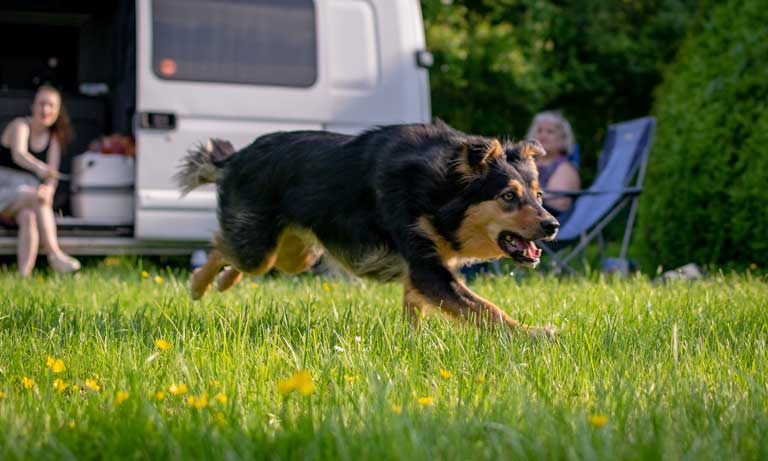Pet travel
What's the issue?
The EU Pet Travel Scheme allows pet owners to move dogs, cats, and ferrets within the European Union without the need for quarantine.
Upon leaving the EU, Great Britain (GB) became a ‘Part II Listed’ Third Country, for the purposes of pet travel and is therefore no longer a member of the EU Pet Travel Scheme. Read UK government guidance on travelling with your pet to an EU country or Northern Ireland.
However, entry requirements and checks for non-commercial movements of pets from EU countries to Great Britain have remained the same as those required under the EU Pet Travel Scheme. To bring your pet dog, cat, or ferret to Great Britain you must meet certain conditions, such as having the correct documentation, identification, vaccination, and treatments.

Making it easier for pet animals to travel between countries raises a number of concerns regarding health and welfare. We are particularly concerned about:
- the ongoing misuse of the pet travel regulations to illegally import puppies;
- the increased risk of exotic and zoonotic diseases (those that can be passed between animals and humans) being brought into the UK via travelling pets; and
- the rehoming of stray dogs from abroad with unknown health histories.
- Abuse of legislation for the commercial movements of pets by illegal importers
Up to date information on pet travel rules is available on GOV.UK
What's our view?
BVA supports the regulation of pet travel - both commercial and non-commercial - to enable the safe and legal movement of pets. Any movements must ensure that animal health and welfare, and public health, are protected, and travel routes are not abused.
BVA supports the strengthening of commercial and non-commercial pet movement legislation to safeguard the health of the UK’s animals and wider public and prevent unintended consequences to animal welfare through the circumvention of existing legislation. We're encouraging the public to be responsible when choosing a pet. We're asking potential owners to use The Puppy Contract and to be aware of the risks of rehoming a stray dog from abroad. So if you're thinking about rehoming a pet, we'd encourage you to rehome from the existing UK dog population through UK rehoming charities or welfare organisations.
We’re calling on the UK government to strengthen pet travel legislation to protect the health and welfare of the UK’s animals and wider public. Our key asks are:
- reintroduce compulsory tick treatments for all non-commercial movements of cats and dogs;
- introduce tapeworm treatment for cats as well as dogs and shorten the tapeworm treatment window;
- extend the waiting time post-rabies vaccination to 12 weeks;
- restrict the movement of stray dogs from other countries with high rates of diseases that aren’t commonly found in the UK, and introduce mandatory testing in stray dogs for these diseases before travel;
- strengthen enforcement provisions and compliance checks for the commercial movement of pets; and
- support vets to report suspected illegal imports and non-compliance with pet travel regulations.
Pet travel between GB and Northern Ireland
Since the end of transition, pet travel requirements from GB to Northern Ireland have included an Animal Health Certificate and tapeworm treatment (for dogs). Repeated tapeworm treatment could be considered an overtreatment and might not represent good practice in terms of promotion of responsible use and the potential for increased resistance. We consider that a common travel area for the British Isles could be a pragmatic solution from an epidemiological perspective.
Read our policy documents
Get involved
- Write to your MP to support our calls to strengthen pet travel legislation. Find your MP.
- Report a suspected illegal importation or non-compliance with the Pet Travel Scheme to your local Trading Standards office.
- Download the GOV.UK ‘How can I take my pet on holiday when the UK leaves the EU?’ posters for your practice.
- Share our Trojan dogs campaign to highlight the risks of rehoming dogs from overseas.
